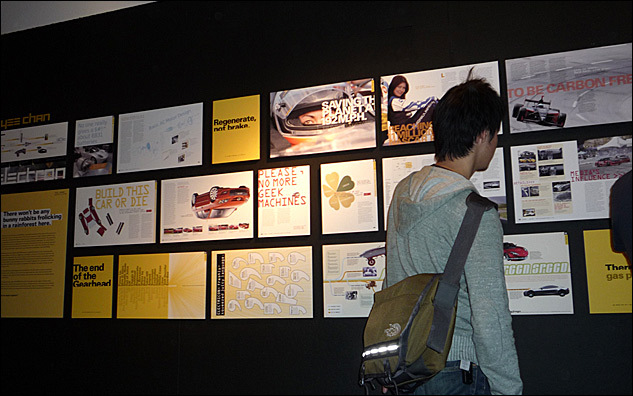

The automobile will always be a part of our popular collective imagination. Given historical evidence of the past 100 years, car culture will not die, but the cars will change. Car nuts have been admiring the machinery of the automobile since they were invented in the late 1800s. From the first steam-engined cars to the first electric starter mass popularized in 1920, the industry has constantly been making modifications and tweaks toward improving the auto for speed, improved aesthetics and function. In the late 1940s, GIs returned to the United States from WWII, with their renewed sense of optimism and willingness to spend money on hand-me-down cars from the 30s. Ford and Chevy cars were modified for speed and became the object of pride in the backyard/garage between father and son. The term "shade tree mechanic" was coined, and the Hot Rod culture of the 50s was born. U.S. car companies took heed of this car culture and created muscle cars in the 60s to early 70s. The fuel crises of the 70s hit and overnight, muscle cars were not in vogue anymore, much like GM's Hummers of today. In the 80s, smaller/fuel efficient Japanese cars arrived to our shores, and a new era of "Import Tuners" was born. The mid 90s til 2000 was a time of economic prosperity, and consumers jumped to luxury cars and SUVs. Nowadays, we are in a recession and most car companies are in economic trouble. The next big trend is green mobility as evidenced in the large amount of hybrid concept cars in the Geneva Auto Show of 2010.
To understand trends in car culture, one must understand trends of consumer demand. Today, the cars
that will be marketed must be affordable, eco-friendly, desirable and fun. There are not many sporty fun
cars
around that are green. However, some claim that green cars are meant to be fuel efficient and demonstrate
responsibility toward the planet, and that they serve that function well. By overlooking the emotional desire
of car ownership and mainstream acceptance, hybrids/electric cars will never reach popular acceptance.
Like it or not, the concept of the gasoline internal combustion engine is passe, inefficient and uncivilized. Experts, such as Amory Lovins of the Rocky Mountain Institute, state that the future of motoring lies in electric-powered propulsion. Regardless of the specific alternatives we arrive at, the electric-powered automobile must be at the forefront of mainstream car culture.
It starts with semantics: the "alternative" fueled vehicle label makes electric cars and hybrids subordinate.
Jay Leno, comedian and car collector, interviewed by Top Gear (a BBC automotive show), stated how there will be a time when we drive gasoline powered cars in the weekends (like some classic/antique cars, while electric cars will be the norm). For that to happen, electric-powered cars will have to be the dominant automobile compared to gasoline cars. Popular culture must embrace, desire and need them as the ideal mode of transportation. Enthusiasts' acceptance, including the old guard of car culture must embrace this inevitable change.
Enter ELECTRON. Electron is a publication for the cultivation of green car culture benefiting environmentalists, car enthusiasts, manufacturers, as well as new readers browsing at the bookstore
or website. By utilizing design research methods, hybrid and electric car desirability can be cultivated
to ultimately help reduce CO2 emissions and fossil fuel consumption. If we are to believe that the world
of zero emissions will exist one day, ELECTRON is there to accelerate the process (excuse the pun).
next
______________________________________________________________________________
©2010 Yee Chan & Art Center College of Design
